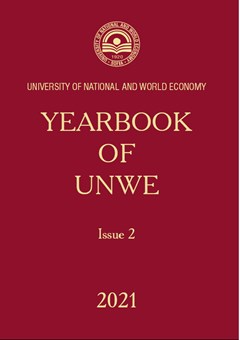Gamification in Business Logistics Training through Evolutionary Algorithms
Authors: Angel Marchev, Maria Vodenicharova, Jr
Abstract
Developing multifaceted contemporary individuals implies that they have to be constructed as one whole system, as well as provide for their creative realization. In order to improve the training of university students, innovative models for conducting lectures and seminars should be implemented. The change in curricula should meet the social requirements of the modern world and technologies used by students. Implementing gamification in the business logistics training should aim at studying and establishing logistics knowledge and skills activities and processes. The games included in the curriculum should take into consideration the changes and not only identify the state and progress students make and to provide opportunities for making business decisions, they should be motivating and correcting, generating ideas and alternatives.
Gamification is the application of game-design elements in various systems which can be used in education. Within the education framework this can involve a number of game mechanisms. The possibilities to use these game-design mechanisms to facilitate training have become the object of increasingly more research and are ever so often included in practice. The report will focus on identifying how these game mechanisms can improve knowledge in business logistics and along with that strengthen efficiency and the provision of new opportunities for instructors. The paper presents an educational computer game for evolutionary algorithms (EA) which could be used in class as well as for distance learning. After the essence of the EAs is reviewed, the plot and mechanics of the game are described as well. Furthermore, a comprehensive study on the game balance is conducted to showcase the advantages of using the game as an educational tool.
JEL: F630, L90, R41

